Scotch whisky terroir lends its character to whisky from Scotland's different whisky regions, and the Chieftain's lineup takes us all over Scotland to taste the differences.
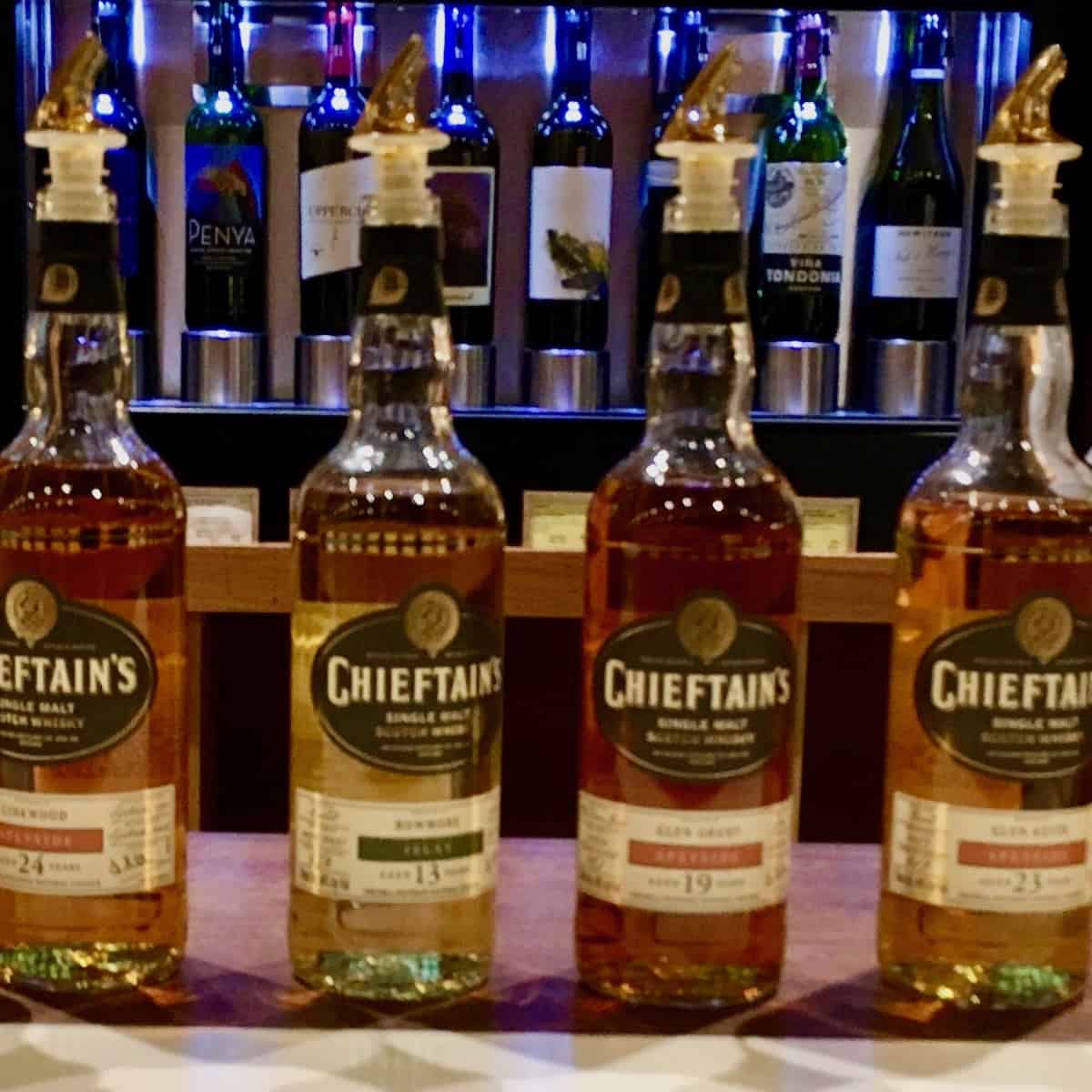
Okay, hands up...who knows what "terroir" means? I know all you wine aficionados do...put your hands down, smarty-pants.
In wine making, terroir refers to the character imparted to the wine based on the environment in which the grapes are grown (like the type of soil in the vineyard, the amount of sunshine and temperature during the growing season, the weather, etc.).
Why am I talking about wine making, you might ask? Because scotch whisky terroir can be used to describe some of the scotch variations based on the region of Scotland in which the whisky is produced.
Beginning to understand the science of spirits
When I was in culinary school several years ago, I took a wonderful class called "Food and Beverage Ops." It was one of the lecture classes designed for people who would eventually run a restaurant, but for me (with no such aspirations), it was an eye-opening experience into the world of wine and spirits.
Oh, I had dabbled in wine and eventually various spirits, but I knew very little as to how they were made. Well, let me tell you, this class filled in a lot of that knowledge gap, and then some!
That first day we jumped into the world of brewing beer. I had no idea what went into making beer, and I was amazed. Here again was magic and science in action! And after the lecture and note taking was over, we popped open a few bottles of beer and had a tasting right there in class! At 11am!
Luckily I had a break, then my Baking Science lab afterwards so I didn't have to drive home.
We studied the distillation process of spirits next, then the rest of the term was devoted to wine production, with tastings and the end of each class.
I was in awe of our Chef Instructor for his ability to discern the nuances of the different wines we tried. And I tried...I really did.
Learning about what went into wine making, the regions worldwide, the grape varieties, and the terroir of the bottling filtered its way into my senses. Slowly I started to be able to get a hint of what qualities I tasted, which in turn told me what I kinds of wine I liked and what to order with dinner.
Scotch and flavor
Scotch to me has so much going on in the glass. That's what captivated me in the first place.
It's like the wine of the spirit world (OOooohh...ghosts! Oh wait, wrong spirit world. Sorry).
Prior to discovering scotch I had been drinking mostly vodka, and that I had to doctor up into some sort of cocktail. But whisky...now here was a drink that needed no further embellishment.
Outlander might have brought me in the door, but the liquid in the glass knocked me off my feet. There were so many aromas and flavors to try and name, and my Food & Bev Ops class that started to train me in the art of wine tasting was now coming in handy again.
Scotland's Whisky Regions
There are 5 major regions in Scotland:
- Highlands with their honey and heather flavors
- Speyside which can be light and grassy, or rich and sweet
- Lowlands which is the lightest style with less flavor influences,
- Campbletown known for being smoky
- Islay & other islands big and smoky from the ocean-influenced peat)
Most people who have a lot more experience with whisky than me can tell where an offering has been produced at the first (or second) sip, maybe even just by the scent.
I recently had a chance to taste scotch from 3 of the 5 different regions in Scotland, so the appearances of the scotch whisky terroir were more apparent.
And now...the tasting notes (at last!)
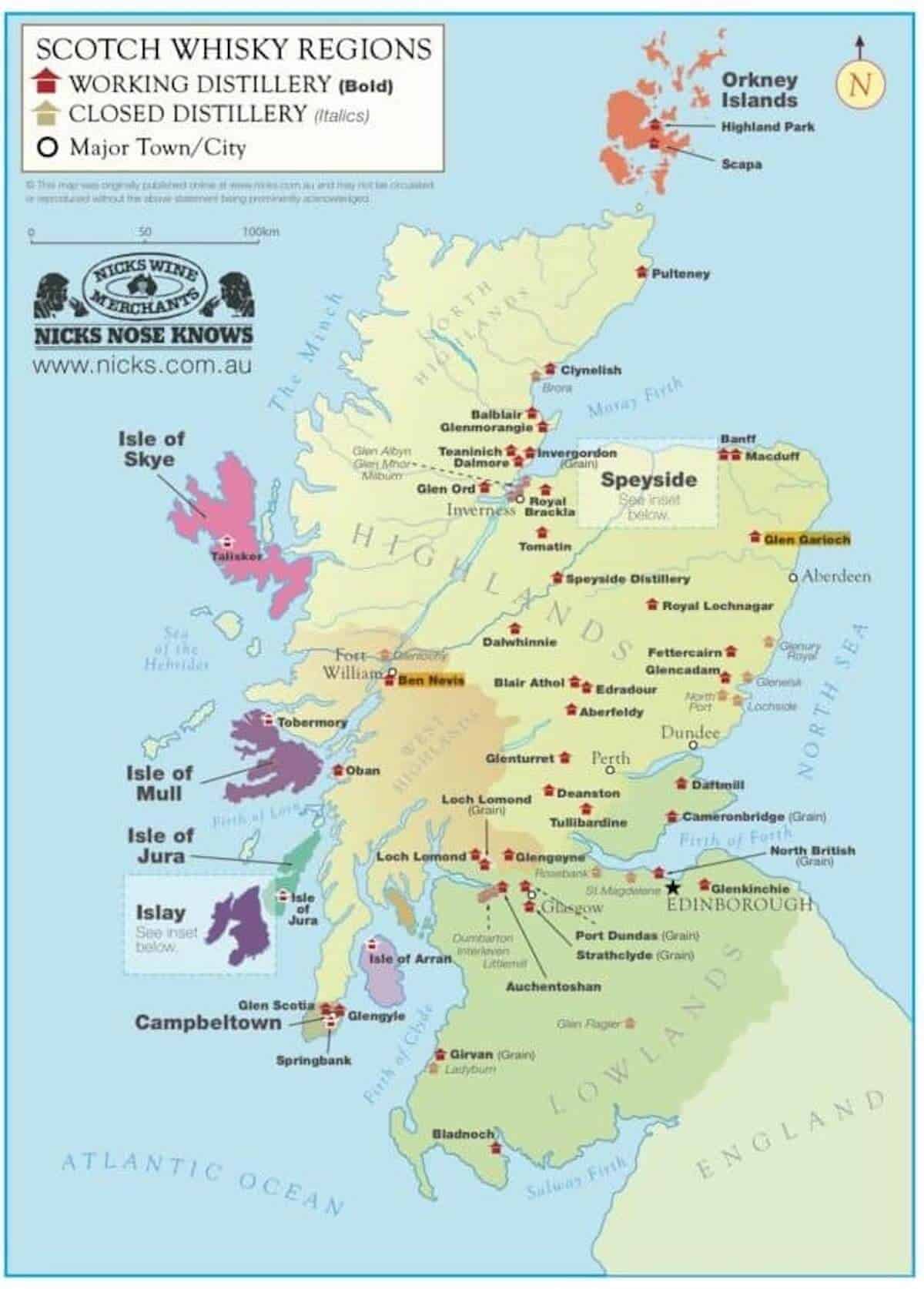
Chieftain's Scotch Whisky Terroir Collection
At Gordon's DTX presented by Joshua Hatton, February 8, 2017
Chieftain's Glen Grant 19yr
Tasting Notes
- Nose: wood, flowers, fruit
- Taste: light smoke, leather, vanilla, sweetness, malt, character
- Comments: Nice on the palate. I'd have this again
Chieftain's Glen Keith 23yr
Tasting Notes
- Nose: apples, light, nutmeg
- Taste: creamy, spice middle, spicy finish, fruity, light leather
- Comments: This was good
Chieftain's Bowmore 13yr
Tasting Notes
- Nose: vanilla, sweet, campfire
- Taste: light peat, vanilla, light leather, spice up the nose, long finish
- Comments: Lightly peated, easy to drink
Chieftain's Linkwood 24yr
Tasting Notes
- Nose: warm spice, vanilla
- Taste: creamy finish, smooth, not harsh, eases into the mouth, honey
- Comments: very good!
Chieftain's Glenrothes 19yr
Tasting Notes
- Nose: vanilla, fruit
- Taste: eases in, so smooth, leather, maple, wood
- Comments: very soft and approachable
Chieftain's Glenturret 25yr
Tasting Notes
- Nose: sweet vanilla
- Taste: smooth like honey, high flavor finish
- Comments: quite yummy
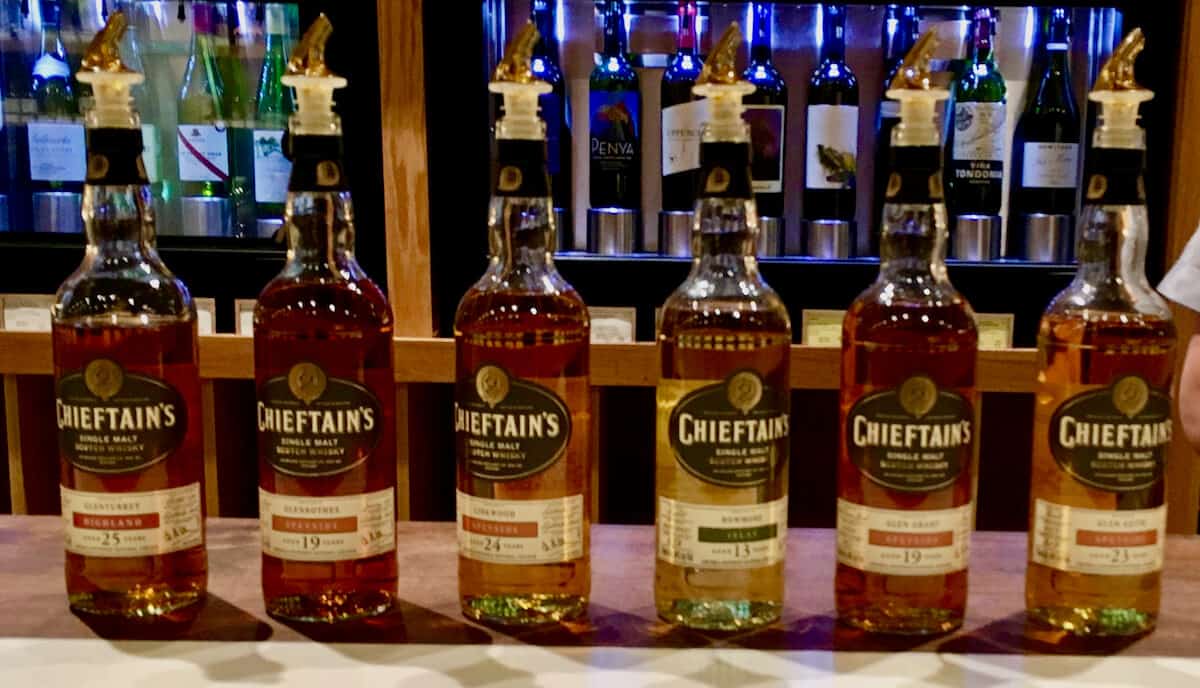
Ardbeg Airigh Nam Beist
Tasting Notes
- Nose: smoke, wood, burnt toffee
- Taste: peat grew, smooth start, woody finish, subtle, little bit of iodine
- Comments: it doesn't hit you in the face with the peat, I did enjoy this one
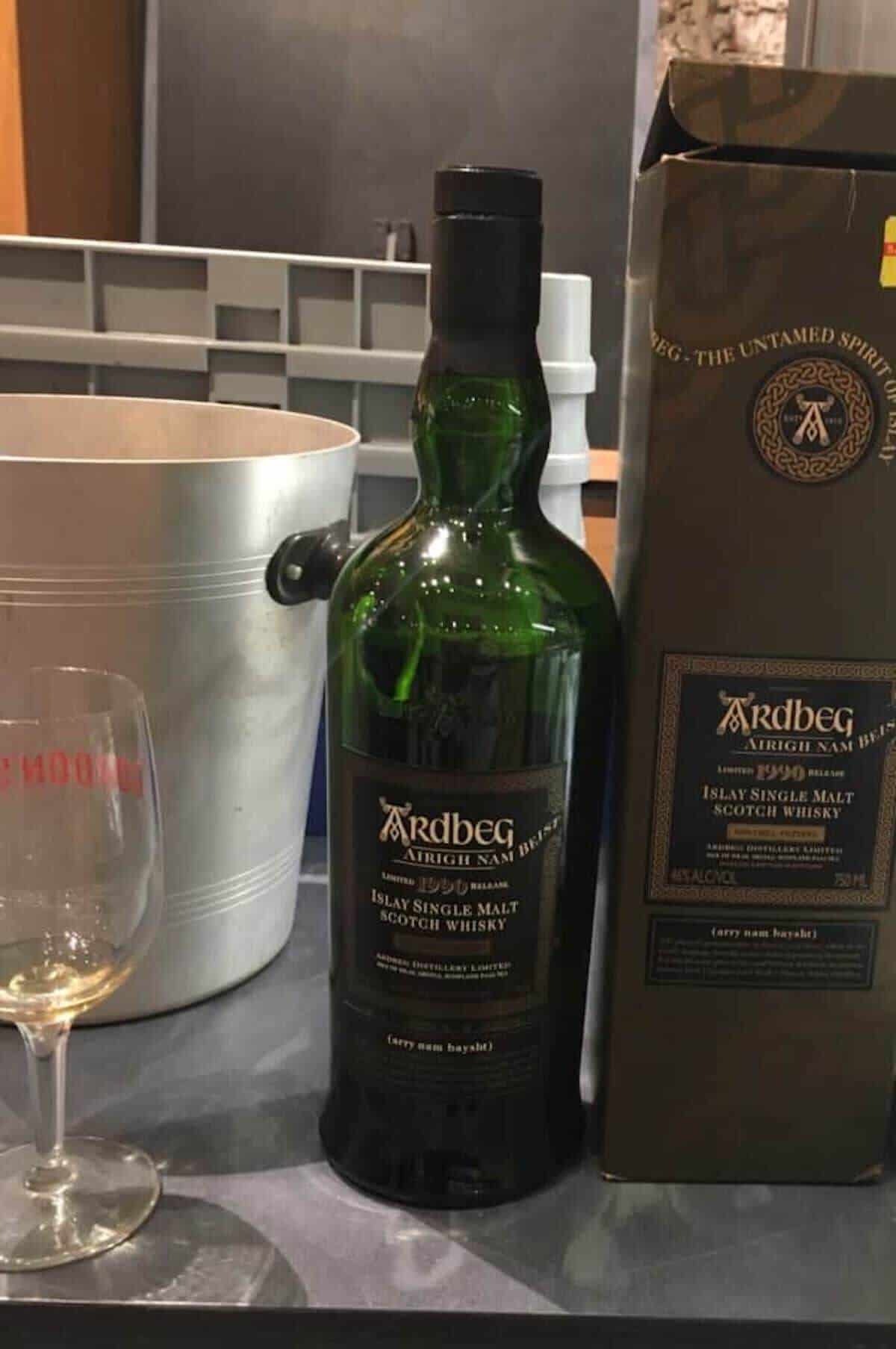
Final thoughts
The terroir of the different offerings was quite pronounced, and I could start putting "names to faces" (or maybe "regions to characteristics") as the tasting went on.
Now I know that regionality is but one aspect that goes into the aroma and taste of the whisky, but I find it interesting that it does have an almost predictable affect. If you have an Islay whisky, you're most likely going to have a ocean-influenced peaty flavor mixed in with the rest of the profile, while a Highland scotch will be generally sweeter, like honey.
I like the knowledge that imparts. It's another way of deciding what to try and what to buy.


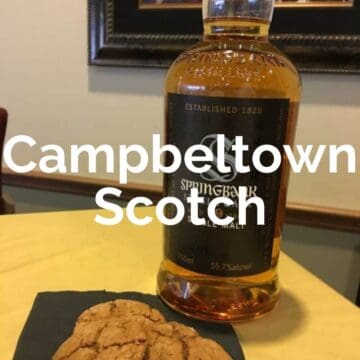




normsimonton says
Tammy as always a very informative blog posting, it's personable like I'm right in front of you and just talking to you. Glad you enjoyed the ardbeg. I'll bring in something good the next time for your palate.
Here's a scotch you should try any of the octomore, really peaty, you'll enjoy it.
Until the next ww
Slainte'
Norm
Tammy says
Thanks for your kind words, Norm. I'll be on the lookout for Octomore!
jonathankurtzman says
I love scotch. I have a peaty blend called "cigar malt" you might like
Tammy says
I'd love to give it a try!